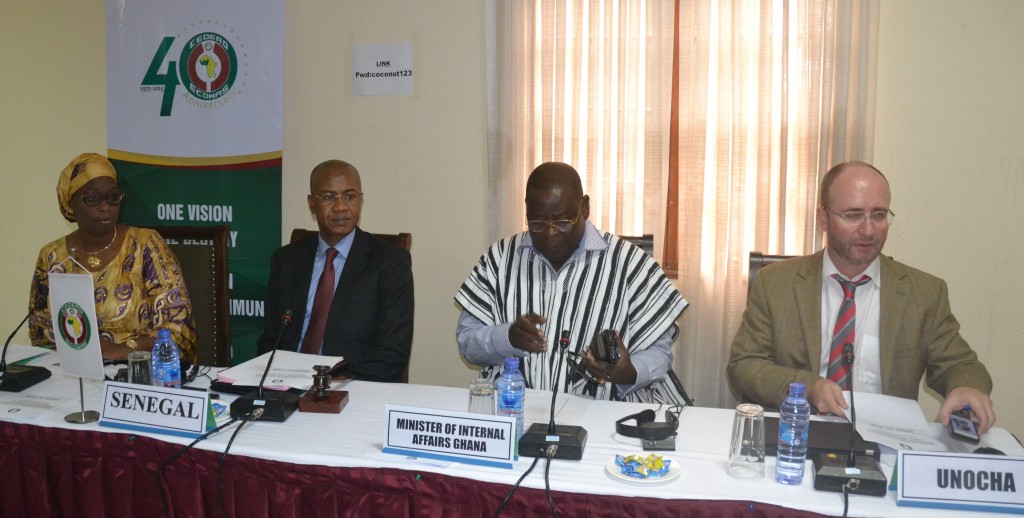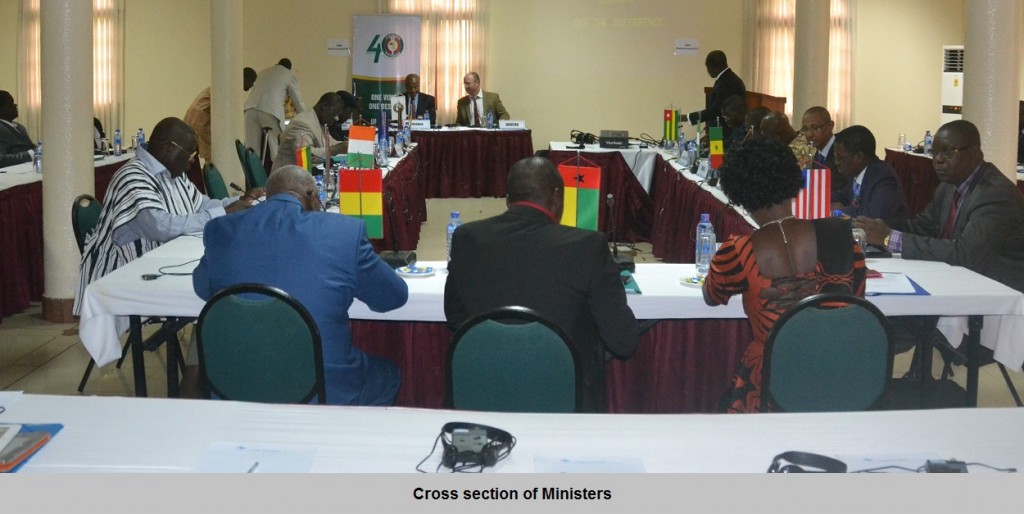 A Model for National Disaster Management Agencies (NDMA) has been adopted by Ministers of the Economic Community of West African States (ECOWAS)By the adoption, Member States are expected to ensure the adaptation of the Model elements to their specific country contexts, while prioritizing capacity building for disaster management. A Model for National Disaster Management Agencies (NDMA) has been adopted by Ministers of the Economic Community of West African States (ECOWAS)By the adoption, Member States are expected to ensure the adaptation of the Model elements to their specific country contexts, while prioritizing capacity building for disaster management.
The Ministers deliberated upon and adopted the ECOWAS Model National Disaster Management Agency as well as the specific recommendations emanating from the Experts report from the meeting which held at the Coconut Grove Hotel Accra, Ghana on the 24th of October 2015.
Some of the key elements embedded in the 15-paged Model are effective preparedness in the event of pandemics, contingency planning, response to disasters as well as coordination.

In addition, the Disaster Management Cycle in the Model, captures the critical phases of prevention/mitigation including rehabilitation/ reconstruction in the post-disaster stage.
Before the Model was eventually adopted, the ECOWAS Commissioner for Social Affairs and Gender Dr. Fatimata Dia Sow stressed the importance of the subject matter stating that the document will serve as a guide in ensuring national level resilience and response capability to humanitarian threats and shocks.
She had also emphasized the need for explicit and effective linkage of humanitarian issues with development and security including improved resilience of our societies to a variety of risks including health pandemics such as Ebola.
The Ghanaian minister of Interior Hon. Mark Woyongo drew attention to the importance of the meeting in achieving a safe and humane existence for all persons within the ECOWAS Region. The Minister identified the greater frequency of disasters and the complications brought about by climate change within the context of development, rural urban migration and impacts on the environment. He highlighted the rain and fire disaster in Accra on the 3rd of June 2015 as an example of the interaction of diverse factors and the need for a robust coping capability by Member States. He seized the opportunity to thank UN and other agencies for their support in response to the incident.
The adopted Model diligently envisioned the pre-disaster/pre-impact Phases, the disaster/impact phase proper as well as post-disaster/post-impact and recovery phase and takes care of the issues arising from them over the years bordering on early warning, activation of response systems, evacuation, as well as provision of shelter and pre-positioning of resources.

The other issues involved are coordination of response operations, survey and assessment, Information Management, Search and Rescue, Treatment and Care of Victims, Evacuation, Clearance and Access, Water and Power Supplies, Health and Sanitation, Security, Emergency Construction and Engineering, Disaster welfare inquiry, Maintenance of Public Moral, etc.
With the earlier adoption of the ECOWAS Humanitarian Policy and its Plan of Action, the Authority of Heads of State and Government instructed Member States and the ECOWAS Commission to put in place a National Agency for Disaster Management and for coordination of humanitarian actions in each Member State of ECOWAS
In line with the provision of the Plan of Action of the ECOWAS Humanitarian Policy 2012-2017, Member States are expected to establish or create a National Disaster Management Agency in their respective states within two years from the adoption of this Model.
In attendance for the adoption were ministers and representatives of Member States of Benin, Burkina Faso, The Gambia, Ghana, Guinea, Guinea Bissau, Liberia, Mali, Niger, Nigeria, Senegal, Sierra Leone and Togo.
They were supported by the High Representatives from the United Nations Office for the Coordination of Humanitarian Affairs (OCHA), The United Nations Office for West Africa (UNOWA), International Federation of the Red Cross (IFRC) as well as the ECOWAS Emergency Response Team (EERT). |






